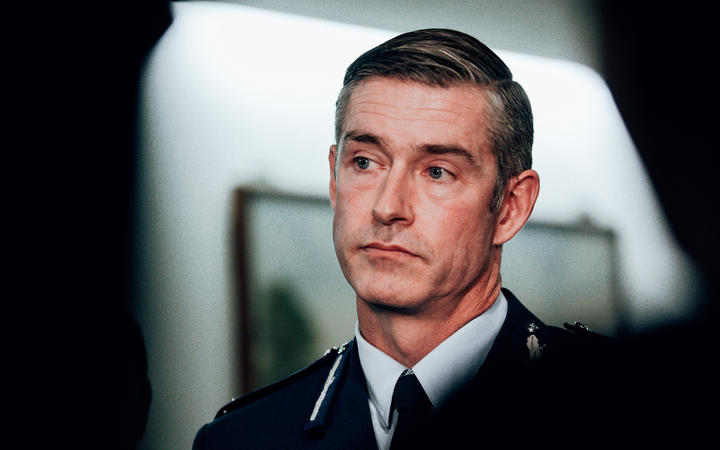
On Thursday Matu Tangi Matua Reid, 24, walked onto a construction site in lower Queen Street, where he had been working, and opened fire with a pump action shotgun.
Three people died, including Reid. Six others were taken to hospital, including two police officers.
Police Commissioner Andrew Coster said that firearms controls introduced in recent years were expected to reduce the number of guns in circulation in the community, but it would take time.
"We've known for quite some time that our firearms environment is not where we need it to be. That was something that was well traversed post the 2019 attacks in Christchurch - hence the changes to gun legislation - the firearms register went live in the last couple of weeks," Coster said.
"Overseas experience suggests that it takes up to a decade or longer to really show the real benefit of that.
"In the meantime we have too many firearms circulating in the wrong hands and that creates a range of challenges for our frontline staff - so it will improve with time, but we need to keep focused on the [problems] that we have under way."
Reid had been sentenced on family violence charges earlier in the year, was serving a five-month sentence on home detention and was wearing an electronic ankle bracelet. He did not have a firearms licence.
Coster said there was no suggestion Reid had breached his home detention conditions. He had reported to his probation officers the day before, and was permitted to travel to the construction site for work.
The incident put the spotlight on how firearms got into the wrong hands, Police Association president Chris Cahill told Morning Report.
In most cases, criminals were obtaining guns from licensed firearm owners, either by buying from them or stealing from them, Cahill said. However, the new firearms register meant owners who did not secure their weapons properly could be held accountable.
"Understanding where these guns have come from is really important if we're going to prevent it in the future.
"Myself and the association have lobbied very hard around firearms control - there's been some significant changes made, and we don't expect those changes to be successful overnight."
However, after the introduction of a firearms register in Australia, "10,000 less firearms were stolen in the first year", Cahill said.
Despite opposition from some firearms owners, the Police Association was adamant that all firearms must be registered, not just some types.
"There's no way we should think that this isn't needed. We register dogs, we register cars for crying out loud. We should register our firearms so we know where they are and that they're under suitable control."
Cahill said there had also been some new developments in police resources to respond to armed incidents.
Armed Offenders Squad members, who were some of the first officers on the scene, now had immediate access to police firearms and had been trained for a new tactical response model called "offender prevention". And general frontline officers now had more specialist training in dealing with firearms, which was likely to have helped with things like site control as the event was unfolding, he said.












